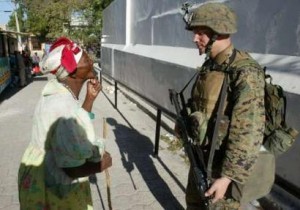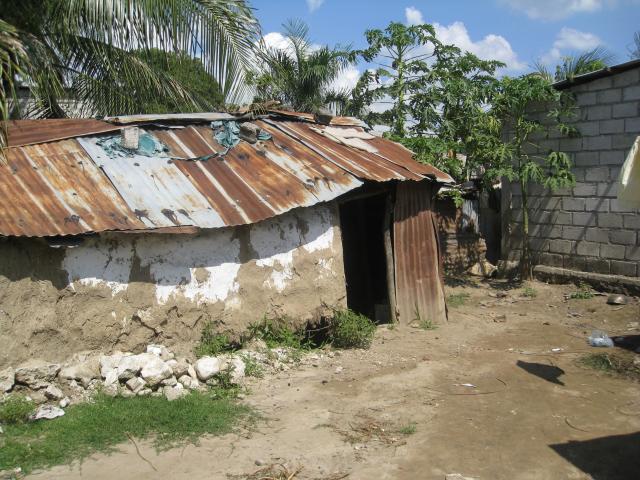 By Fidel Castro Ruz via MRZine
By Fidel Castro Ruz via MRZine
In my Reflection of January 14, two days after the catastrophe in Haiti, which destroyed that neighboring sister nation, I wrote: “In the area of healthcare and others the Haitian people has received the cooperation of Cuba, even though this is a small and blockaded country. Approximately 400 doctors and healthcare workers are helping the Haitian people free of charge. Our doctors are working every day at 227 of the 237 communes of that country. On the other hand, no less than 400 young Haitians have been graduated as medical doctors in our country. They will now work alongside the reinforcement that traveled there yesterday to save lives in that critical situation. Thus, up to one thousand doctors and healthcare personnel can be mobilized without any special effort; and most are already there willing to cooperate with any other State that wishes to save Haitian lives and rehabilitate the injured.”
“The head of our medical brigade has informed that ‘the situation is difficult but we are already saving lives.'”
The Cuban health professionals have started to work nonstop, hour after hour, day and night, in the few facilities that remain standing, in tents, and out in the parks or open-air spaces, since the population feared new aftershocks.
The situation was far more serious than was originally thought. Tens of thousands of injured were clamoring for help in the streets of Port-au-Prince; innumerable persons lay, dead or alive, under the rubble of clay or adobe used in the construction of the houses where the overwhelming majority of the population lived. Buildings, even the most solid, collapsed. Besides, it was necessary to track down, in the destroyed neighborhoods, the Haitian doctors who had graduated from the Latin American School of Medicine. Many of them were affected, either directly or indirectly, by the tragedy.
Some UN officials were trapped in their dormitories and tens of lives were lost, including the lives of several chiefs of MINUSTAH, a UN contingent. The fate of hundreds of other members of its staff was unknown.
Haiti’s Presidential Palace crumbled. Many public facilities, including several hospitals, were left in ruins.
The catastrophe shocked the whole world, which was able to see what was going on through the images aired by the main international TV networks. Governments all over the world announced they would be sending rescue experts, food, medicines, equipment, and other resources.
In accordance with the position publicly announced by Cuba, medical staff from different countries — namely Spain, Mexico, and Colombia, among others — worked very hard alongside our doctors at the facilities they had improvised. Organizations such as PAHO, friendly countries like Venezuela, and other nations supplied medicines and other resources. The impeccable behavior of Cuban professionals and their leaders, who chose to remain out of the limelight, was absolutely void of chauvinism.
Cuba, just as it had done under similar circumstances, when Hurricane Katrina caused huge devastation in the city of New Orleans and the lives of thousands of American citizens were in danger, offered to send a full medical brigade to cooperate with the people of the United States, a country that, as is well known, has vast resources. At that moment what was needed were trained and well-equipped doctors to save lives. Given New Orleans’ geographic location, more than one thousand doctors of the “Henry Reeve” contingent mobilized and readied to leave for that city at any time of the day or the night, carrying with them the necessary medicines and equipment. It never crossed our mind that the President of that nation would reject the offer and let a number of Americans who could have been saved die. The mistake made by that government was perhaps due to the inability to understand that the people of Cuba do not see in the American people an enemy; they do not blame them for the aggressions our homeland has suffered.
Nor was that government capable of understanding that our country does not need to beg for favors or forgiveness of those who, for half a century now, have been trying, to no avail, to bring us to our knees.
Our country, also in the case of Haiti, immediately responded to the US authorities’ requests to fly over the eastern part of Cuba as well as other facilities they needed to deliver assistance, as quickly as possible, to the American and Haitian citizens who had been affected by the earthquake.
Such have been the principles characterizing the ethical behavior of our people. Together with its impartiality and firmness, these have been the ever-present features of our foreign policy. And this is known only too well by whoever have been our adversaries in the international arena.
Cuba will firmly stand by the opinion that the tragedy that has taken place in Haiti, the poorest nation in the Western hemisphere, is a challenge to the richest and more powerful countries of the world.
Haiti is a net product of the colonial, capitalist, and imperialist system imposed on the world. Haiti’s slavery and subsequent poverty were imposed from abroad. That terrible earthquake occurred after the Copenhagen Summit, where the most elemental rights of 192 UN member States were trampled upon.
In the aftermath of the tragedy, a competition has been unleashed in Haiti to hastily and illegally adopt boys and girls. UNICEF has been forced to adopt preventive measures against the uprooting of many children that will deprive their close relatives of their rights.
There are more than one hundred thousand dead victims. A large number of citizens have lost their arms or legs, or have suffered fractures requiring rehabilitation that would enable them to work or manage their lives on their own.
Eighty percent of the country needs to be rebuilt. Haiti requires an economy that is developed enough to meet its needs according to its productive capacity. The reconstruction of Europe or Japan, which was based on the productive capacity and the technical level of the population, was a relatively simple task compared to the effort that needs to be made in Haiti. There, as well as in most of Africa and elsewhere in the Third World, it is indispensable to create the conditions for a sustainable development. In only forty years’ time, humanity will be made of more than nine billion inhabitants, and it is faced right now with the challenge of a climate change that scientists accept as an inescapable reality.
In the midst of the Haitian tragedy, without anybody knowing how and why, thousands of US marines, 82nd Airborne Division troops, and other military forces have occupied Haiti. Worse still is the fact that neither the United Nations Organization nor the US government has offered an explanation to the world’s public opinion about this deployment of troops.
Several governments have complained that their aircraft have not been allowed to land in order to deliver the human and technical resources that have been sent to Haiti.
Some countries, for their part, have announced they would be sending an additional number of troops and military equipment. In my view, such actions will complicate and create chaos in international cooperation, which is already in itself complex. It is necessary to seriously discuss this issue. The UN should be entrusted with the leading role it deserves in these delicate matters.
Our country is accomplishing a strictly humanitarian mission. To the extent that it is possible, it will contribute the human and material resources at its disposal. The will of our people, who take pride in their medical doctors and workers who cooperate to provide vital services, is strong and will rise to the occasion.
Any significant opportunity for cooperation that is offered to our country will not be rejected, but its acceptance will be entirely dependent on the importance and significance of the assistance that is requested from the human resources of our homeland.
It is only fair to state that, up until this moment, our modest aircraft and the important human resources that Cuba has made available to the Haitian people have arrived at their destination without any difficulty whatsoever.
We send doctors, not soldiers!













